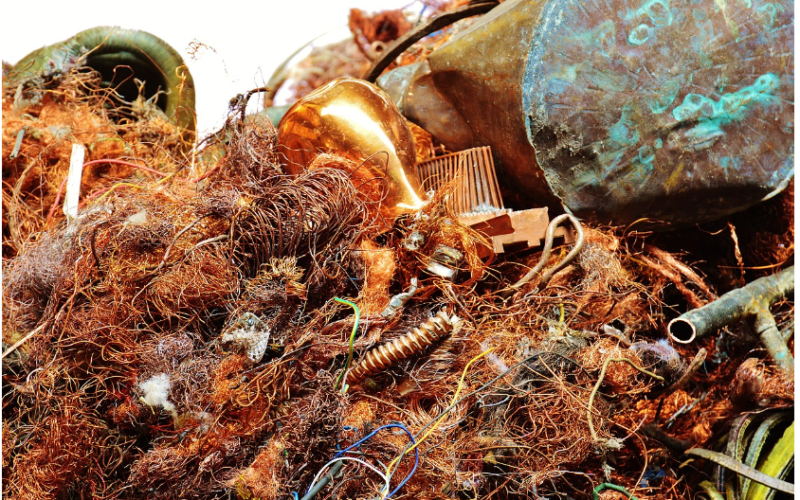Copper is an essential element in modern society, playing a vital role in various industries, including construction, electronics, and transportation. As demand for copper continues to rise, so does the importance of recycling this valuable metal. Copper recycling is not only crucial for economic reasons but also has significant environmental benefits. This article explores why copper recycling matters and provides insights into its positive impact on the environment.
The Importance of Copper Recycling
Copper recycling involves reclaiming copper from used products and reprocessing it for new applications. Unlike some materials, copper can be recycled indefinitely without losing its properties. This makes copper recycling an efficient way to meet the growing demand for this metal while minimizing environmental harm.
Reducing Energy Consumption
One of the primary environmental benefits of copper recycling is the significant reduction in energy consumption. Producing copper from recycled materials requires up to 85% less energy than extracting and processing virgin copper ore. This energy saving translates into reduced greenhouse gas emissions, helping to mitigate climate change. For instance, recycling one ton of copper can save about 5000 kWh of energy, equivalent to the annual energy consumption of a small household.
Conserving Natural Resources
Copper is a finite resource, and its extraction often involves environmentally destructive mining practices. Copper mining can lead to habitat destruction, soil erosion, and water pollution due to the release of toxic chemicals used in the extraction process. By recycling copper, we can reduce the need for new mining operations, thus preserving natural landscapes and protecting ecosystems. Conserving natural resources through copper recycling ensures that future generations can also benefit from this vital metal.
Reducing Landfill Waste
Discarded electronic devices, appliances, and other copper-containing products contribute significantly to landfill waste. E-waste, in particular, is a growing environmental concern due to the hazardous materials it contains. Copper recycling helps divert these items from landfills, reducing the environmental burden and preventing soil and water contamination. Proper recycling of copper from e-waste ensures that valuable materials are recovered and reused, promoting a circular economy.
Lowering Carbon Footprint
The carbon footprint associated with copper production is considerable, mainly due to the energy-intensive nature of mining and refining processes. By recycling copper, we can significantly lower the carbon footprint of the copper industry. Recycling reduces the need for energy-intensive smelting and refining, leading to lower carbon dioxide emissions. This contributes to global efforts to combat climate change and reduce the overall environmental impact of industrial activities.
The Economic Benefits of Copper Recycling
While the environmental advantages of copper recycling are substantial, the economic benefits should not be overlooked. Recycling copper can be a profitable endeavor, creating jobs and supporting local economies. The recycling industry generates employment opportunities in collection, processing, and distribution, contributing to economic growth.
Additionally, recycled copper is often less expensive than newly mined copper, providing cost savings for manufacturers and consumers. By reducing production costs, copper recycling can make products more affordable and accessible, driving innovation and economic development.
Challenges and Future Directions
Despite its many benefits, copper recycling faces several challenges. One significant issue is the collection and separation of copper from other materials, particularly in electronic waste. Efficient recycling processes require advanced technologies and infrastructure, which may not be available in all regions.
Furthermore, raising public awareness about the importance of copper recycling is essential. Education and outreach programs can encourage individuals and businesses to recycle copper-containing products responsibly. Governments and industry stakeholders must also collaborate to establish effective recycling policies and regulations.
Looking to the future, advancements in recycling technologies hold promise for improving the efficiency and effectiveness of copper recycling. Innovations such as automated sorting systems, improved chemical separation methods, and enhanced smelting techniques can enhance the recovery rates of copper from various waste streams.
Conclusion
Copper recycling is a critical component of sustainable resource management, offering substantial environmental and economic benefits. By reducing energy consumption, conserving natural resources, and lowering carbon emissions, copper recycling plays a vital role in protecting the environment. As the demand for copper continues to grow, embracing recycling practices will be essential for ensuring a sustainable and prosperous future. Through concerted efforts by individuals, industries, and governments, we can maximize the positive impact of copper recycling and create a more sustainable world.
